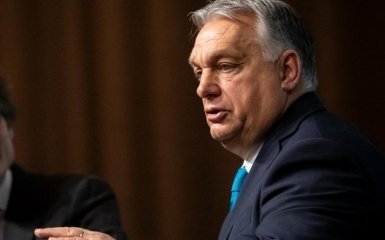The European Union was unable to make a single statement on behalf of all member states regarding the results of the elections in Venezuela, as Hungary vetoed it.
Points of attention
- Hungary's veto became an emphasis on the problems in the foreign policy of the European Union and the need to agree decisions unanimously among the 27 member states.
- After Hungary blocked the statement, the EU's foreign policy chief issued his own statement, discussing the results and the need for support in the case of the elections in Venezuela.
- Nicolás Maduro was declared the winner in Venezuela's elections, but there are doubts about the legitimacy of the results, expressed by the opposition and the EU.
- The issue of the elections in Venezuela has caused mass protests and disputes between the government and the opposition, which gives rise to the aggravation of the political situation in the country.
Why Hungary blocked the EU's joint statement on the elections in Venezuela
As noted, Venezuelan President Nicolás Maduro was declared the winner of the July 28 election with 51% of the vote against 44% of his opponent, Edmundo González Urruti.
However, the government failed to explain the counting and verification of the results.
The EU was planning a joint statement on the elections, but Budapest's position prevented it, two officials told the publication.
EU foreign policy chief Josep Borrell issued his own statement, noting that "credible observer reports point to numerous flaws and irregularities" during the elections.
The data that the Venezuelan opposition has provided to the public are radically different from the results announced by the country's authorities, Borrell said.
Realizing that Hungary was likely to remain intransigent, Borrell issued a restatement on July 30 on his own behalf, rather than seek support from the 27 EU member states.
The data that the (Venezuelan) opposition has provided to the public show radically different results than those announced by the country's authorities, Borrell's second statement said.
Hungary's veto underscores a fundamental flaw in the EU's foreign policy, according to which decisions — including potential future sanctions against Venezuela — must be agreed unanimously among the 27 member states. Some countries, such as Germany, favor making foreign policy decisions by a qualified majority.
What is known about the elections in Venezuela
On July 29, Venezuelan President Nicolás Maduro was declared the winner of the presidential election, despite accusations by the opposition of irregularities during the election.
According to the National Electoral Council, Maduro won 51% of the vote, while opposition candidate Edmundo González won 44%.
In this regard, large-scale protests are ongoing in Venezuela. At the time, Maduro said that in Venezuela "they are trying again to carry out a fascist and counter-revolutionary coup d'état."




